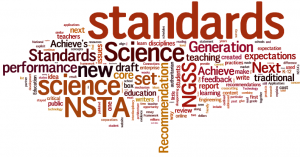 Education officials in Montana just proposed new science standards last week emphasizing local roots as a major foundation for them. The new science standards, explains Montana Office of Public Instruction director of content standards and instruction Jael Prezeau, are truly “Montana’s science standards.”
Education officials in Montana just proposed new science standards last week emphasizing local roots as a major foundation for them. The new science standards, explains Montana Office of Public Instruction director of content standards and instruction Jael Prezeau, are truly “Montana’s science standards.”
While that may be true, it does also appear that Montana’s standards somewhat resemble the Next Generation Science Standards. These are regulations which had originally been developed a group of 26 states, back in 2013. The Board of Public Education has already signed off on these standards and which have been endorsed by various education and industry groups—including ExxonMobil—and, finally, have been highly praised for their more rigorous attention to critical thinking development.
However, the regulations have also been somewhat controversial. In particular, the regulations have connected climate change and human activity.
“That was one of the resources that they looked at,” she comments. “There was tons of opportunity for people to have input into this. At the end of the day, whatever the draft looks like, that’s what it reflects.”
Scott Dubbs is the curriculum director for Lewistown and was involved in the scribingof these proposed standards. He has actually called them “Montana’s take on what we think is important in NGSS.” Unfortunately, though, this interesting tweak appears to lack in one area: human-caused climate change
In at least one area, a tweak appears to back away from human-caused climate change.
Accordingly, the The proposed Montana standard that appears to read “a computational simulation to illustrate the relationships among management of natural resources, the sustainability of human populations, biodiversity, and investigate and explain how some American Indian tribes use scientific knowledge and practices in managing natural resources.”
At the same time, proposed NGSS standards do appear to match up with other standards in related sections; specifically, “evaluate or refine a technological solution that reduces impacts of human activities on natural systems.”
According to Missoula County Public Schools Superintendent Mark Than, “What we would like to do is work from an evidence-based approach and encourage students to learn to be consumers of the information and to critically think and evaluate and use evidence to make judgments.”
